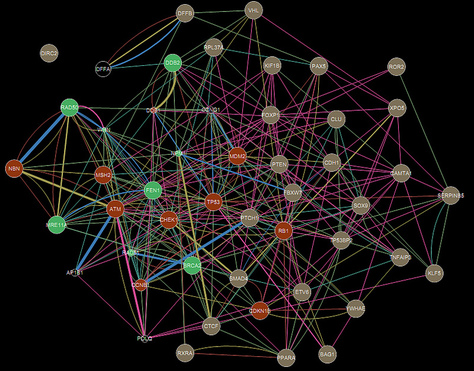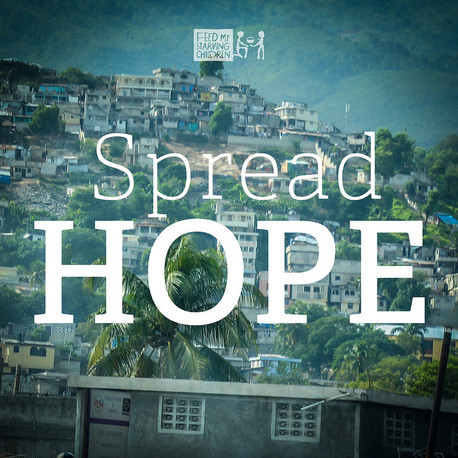|
Few things are more exciting to me then when "good parenting" is validated by science! Perhaps it's a throw-back to my early interest in chemistry and fascination with Albert Einstein. Even if science isn't your thing, if you are a parent, this information will be of interest to you. Read on.
Isn’t it great when science validates something we intuitively know? Such is the case with Dr. Michael Meaney, a professor of McGill University with an interest in maternal care, stress and gene expression. In the Annual Review of Neuroscience he published work centered on the natural variation he noticed in licking and grooming by mother rats. He found that the kind of care that mother rats provide to their offspring alters genes responsible for stress response. The rat pups who experienced more licking and grooming were identifiable by the anatomy of their brain. When Meaney followed the rat pups into adulthood he found that those who were licked and groomed were better at completing mazes and even lived longer. The mechanism at play is that those pups who were licked and groomed produced fewer stress hormones when faced with a challenge. This is important, because he know in humans, when our brains are bathed for too long in stress hormones we are always “on alert,” anxious and exposed to an increased risk of mental health issues, heart disease or diabetes. We want our stress hormones to kick in when we are in danger, then dissipate. The licking and grooming provided to rat pups served as a protective factor and prepared them to manage stressors into adulthood. What to parents of rats and parents of humans have in common? The capacity to provide affection and physical touch to their offspring. Dr. Meaney uses the implications of his work to note “Women’s health is critical. The single most important factor determining the quality of mother-offspring interactions is the mental and physical health of the mother.” This is true regardless if the primary caregiver is a mother, father or even grandparent. In subsequent research Dr. Meaney paired mothers who scored high on licking and grooming with rat pups who were not their biological pups and the outcome was the same. We have opportunities daily to engage with our children in a way that will better prepare them to ride the wave of adulthood in an emotionally healthy way. What does licking and grooming look like when you are in parenting a human rather than a rat? Good question. Many of the things you are already doing, for example, lotioning your child after a bath, playing patty-cake or “this little piggy.” Theraplay is a clinical intervention focused on building attachment between parents and children. One of the domains of focus is nurture, which is all about physical touch and expressing to the child “you are worthy of good care.” Some Theraplay activities include lotioning, which can be used as a variation for an older child. Start by placing dots of lotion along the child's arms, or face and slowly rub in each dot. Creating a secret handshake with your child. Giving your child and manicure or pedicure with a focus on physical touch and nurture. Face painting, a thumb war, mirroring, peek-a-boo. Using your finger to draw letters on your child’s back and see if they can guess the word. Create a variation of a song for your child, Theraplay uses Twinkle Twinkle Little Star, with a twist “Twinkle Twinkle Little Star, what a special boy you are, dark brown hard and soft, soft cheeks, big green green eyes from which you peek…. As you can see many of these activities are built into the way we interact with children already. By being conscious to include them in your daily routines you and your child will benefit. So, the next time you snuggle a newborn, or force your third grader into a hug, feel proud that you are having an impact--on a cellular level. **This was first published by familyshare at: http://www.familyshare.com/Parenting/biochemistry-of-good-parenting.
0 Comments
Announcing an excellent way to ring in the New Year!
Social Skills Group
January 5th -February 9th 2015 Investment: $150 Where: Whitney Barrell’s office 684 e Vine Street Murray, Utah 84106 801.502.5644 **feel free to call with questions, or to see if your child would be an appropriate fit.
A comprehensive list of support groups, therapists, resources and fundraising options for those experiencing infertility. All complied by Utah Fertility Center.
SupportGroups Peer-led Support Groups offer informal opportunities for women and men experiencing infertility to connect with one another, to discuss their situations and to receive support from others who have had similar experiences or who are struggling with similar issues. Group moderators are volunteers and are not mental health professionals. Attendance is free. Please contact the group host before attending your first meeting. Hill Air Force Base -General Infertility Support Group* Host: Rachel Thompson – [email protected] *Open to anyone with base access Logan -Childfree Support Group Location: Logan, UT Host: Sylvia- [email protected] Provo/Orem General Infertility Support Group Host: Kassandra [email protected] before attending your first meeting. For more information about RESOLVE Support Groups, please contact Betsy Campbell at [email protected]. In an effort to help raise awareness, to encourage discussion, and to provide an opportunity to share tangible ways to deal with infertility, ldsinfertility.org sponsors small support groups. • These support groups are offered at no charge to women who would like to attend (in the future, we may open support groups just for men). • The support groups are casual in nature, so feel free to dress casually. • Usually, a support group will last no longer than 1 1/2 hours, but will be based on the needs of the group. Cedar City, Utah Contact: Dawn-Marie, [email protected], 435-590-9491, ldsinfertility.blogspot.com Lehi, Utah Contact: Misti Sudweeks at [email protected] Ogden, Utah–(Support Group not run directly through LDSinfertility.org) http://www.conceivablehope.com Orem, Utah Contact: Kelsey Redd, [email protected] or 360-536-5710 Salt Lake City, Utah Contact: Camille Hawkins, [email protected], 801-971-5358 RESOURCES Utah Infertility Awareness, Seeds of Hope, is a non-profit (501c3) group of community advocates trying to raise awareness of couples affected by infertility. Our goal is to share hope, insight, and seek resolution. Additionally, we would like to offer support and encouragement. For upcoming events [email protected] Footsteps for Fertility Foundation was founded to raise infertility awareness, provide grants for fertility treatments, and organize fundraising events. Footsteps for Fertility Foundation organizes 5 Kilometer races that will be held annually with the goal of promoting infertility awareness and educating couples about how to get grants and affordable treatment options for in vitro fertilization, frozen embryo transfers and intrauterine insemination. footstepsforfertility.org Pound the Pavement for Parenthood is a non-profit organization established in 2010. We are a group of dedicated men and women committed to helping the cause of infertility. We bring awareness to the struggle and help raise precious funds for those ready to start expensive processes including adoption and In-Vitro Fertilization. We are a unique organization focused on people. We are in this only to help other people find hope, healing, and happiness while realizing their dream of becoming parents. Our goals include raising money, but our focus is raising awareness and support for those who struggle with infertility. We feel lucky to be a part of the infertility community and hope that you can find friends and comfort knowing that you are not alone in this and that there is a network of people who know the struggle and who are here to help you through it. www.poundthepavementforparenthood.com INFERTILITY COUNSELING AND THIRD PARTY COUNSELING The Healing Group- “Offering Hope, Growth and Healing through Therapy and Education.” [email protected]; www.thehealinggroup.com 801-461-9060 Wasatch Family Therapy-Marriage and Infertility Counseling Marriage therapy or couples counseling is designed to help you work through relationship or communication problems and create emotional closeness.http://www.wasatchfamilytherapy.com/about-us (801) 944-4555 Whitney Barrell Counseling If you’ve experienced infertility for any length of time, you’ve likely felt a loss of control, anger, confusion and perhaps the highest of highs and the lowest of lows. I have both personal and clinical experience with infertility and it’s emotional implications. Together, we can make difficult decisions about treatment options, provide a safe space to work through the changes in your relationships that have been impacted by infertility. And, most importantly honor and explore the grief and loss of not having things go the way you expected. Whitney Barrell, LCSW 684 e Vine Street Murray, Utah 84107 801.502.5644 : www.whitneybarrellcounseling.com Laura Czajkowski, PhD U of U hospital University Neuropsychiatric Institute Phone: 801-583-2500 Marilyn Snell, PhD Counseling Center Phone: 801-501-8444 Brandon Yabko, PhD Center For Human Potential Phone 801-483-2447 HELPFULLINKS www.sart.com Society of Assisted Reproductive Technology www.asrm.com American Society of Reproductive Medicine www.theafa.org The American Fertility Association www.fertilehope.org Fertile Hope for Woman www.integramed.com Specialty Health Services www.attainfertility.com Infertility Education Support and Information www.fertilitylifelines.com Making treatment affordable One of the best parts of life is traveling through it with friends. You may attend school together, start your first jobs at the same time, then transition into adulthood, which may mean marriage and children. Infertility is often a divergent path for some friendships, but it doesn't have to be.
Many women who are experiencing infertility watch as their friends become pregnant and experience childbirth. An event that is life-changing is now a topic of conversation that may become “sticky” among friendships. Just like most personal events, it’s difficult to understand infertility if you haven’t lived it. People understand things like cancer better. Interestingly, studies completed by Dr. Alice Domar suggest those experiencing infertility have the same levels of stress as those recently diagnosed with cancer. Regardless, the pain of infertility is largely misunderstood and at times not taken seriously. Those experiencing infertility often hear “don’t worry it will happen, maybe if you just relax.” Being relaxed has no correlation with conception. Here are a few things to think about if someone you care about is experiencing infertility. Don't minimize. Infertility is the death of a dream. Many couples imagine and plan for their family well in advance. When it starts to become clear that this may not be a reality, they feel a loss of control, disappointment in one's body, and anger.Reproduction is often viewed as a basic human task, not being able to do what, on a most basic level, our bodies are “meant” to do, can be quite devastating. Many of us ascribe to the idea that if we work hard for something we will achieve it; infertility flies in the face of this concept. In particular, during "child-bearing years," couples may feel they have jumped through the hoops of education, employment and financial stability only to find that a family (created in the traditional way) isn't easily attainable. Your friends are facing a loss of something they always thought would be there. It can't be underestimated. Rely on other friends or family to discuss your pregnancy. If you are expecting and an infertile friend is not, share your joys and complaints with other friends or family. Although it is sad you aren't able to share such a rite of passage with a friend, you'll save your friendship if you rely on other parts of your support network during this time. For someone trying to conceive, the birth of a child may too much to talk about and be reminded of. They won't feel this way forever, just honor the time that they do. Show them you care. Do what you would do if someone had a newly diagnosed condition, which could mean casseroles, cards, flowers, long lunches with a listening ear. This isn't anything different. Let them know that you want to be supportive. Ask them, “Do you want me to ask about how things are going, or wait until you share it?” Some feel that infertility is a private matter, others seek support. Lastly, if you or a loved one is experiencing infertility, Resolve, a national infertility association, can be an excellent resource. Find information about family-building, the emotions of infertility and information on peer-lead support groups. Go to resolve.org, and hang in there. P.S. When this article was first published on KSL, some women that commented noted that they did want to be informed of and involved in a friends pregnancy. Obviously this varies from person to person. If you are dealing with infertility and you know a friend is trying to conceive, you may consider having a conversation about how you would like to be informed of her pregnancy. Do you want to be alone, or by phone. It's a good idea to know your limits and pregnancy announcements are often very difficult to hear when you are trying to conceive, protect your heart and do what will work for you. |
Archives
March 2024
Categories
All
|




 RSS Feed
RSS Feed